In a few short hours, Microsoft is holding an education-focused event. It’s likely that most of the announcements will be focused on Windows software and other services. However, there’s an outside chance of some new hardware as well. Regardless of whether that happens or not, I can see a future where a Microsoft Surface Edgebook could challenge Chromebooks in education.
By “Microsoft Surface Edgebook”, I mean a Microsoft Surface laptop that uses Microsoft’s Edge browser as the main interface on top of a light operating system, similar to how Chromebooks use Google Chrome.
For Chromebooks, that operating system is Chrome OS, which is actually built on Linux. Microsoft has steadily embraced Linux, and open-source software for that matter, over the past several years. The company even has its own custom Linux distribution called CLB-Mariner. It’s freely available for anyone to use although Microsoft uses it specifically for its Azure services.
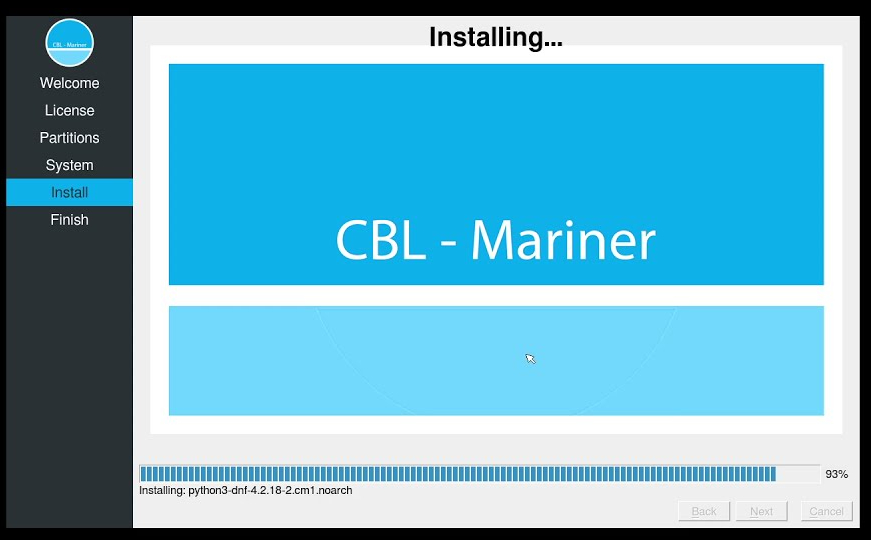
Oh and about WSL, or the Windows Subsystem for Linux, which is similar to Crostini on Chromebooks. I’ve used WSL2, the latest version, on Windows 11 and the experience mirrors my Linux on Chromebook experience. In some ways, it’s even better. It’s much faster, for example.
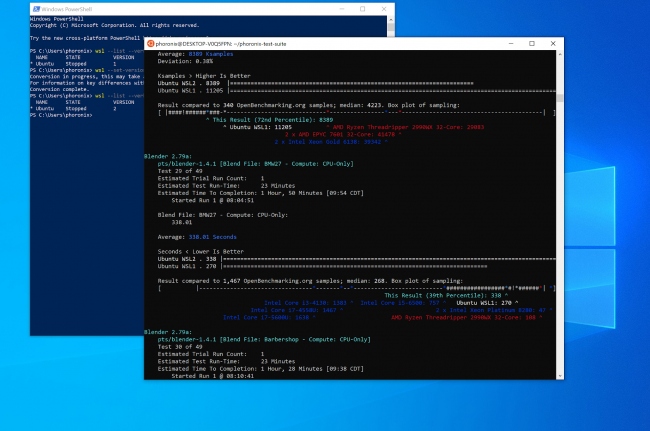
Put Edge and either Microsoft’s own Linux or another distro on a laptop and you have the basics of a Microsoft Surface Edgebook.
Of course, mobile apps would be nice. Progressive Web Apps are well supported on Edge, just like they are on Chrome and Chrome OS. That makes sense since both are built from the Chromium open-source browser. And Microsoft has added support for Android apps on Windows 11, using Amazon’s Appstore as the central source of software. The titles are limited now, but the point is that Android app support on a theoretical Surface Edgebook is a possibility. The back-end for this already exists.
Speaking of apps, productivity suites are important in education. Google Docs is the likely most used service on classroom Chromebooks. If only Microsoft had something similar, it could compete.
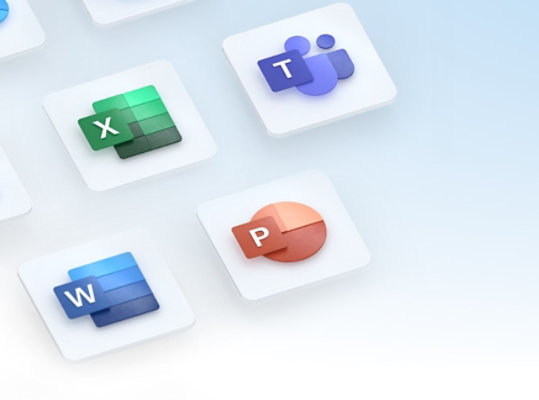
OK, I’m being sarcastic because it’s obvious that Microsoft Office is available through the web today. No, it doesn’t have all of the desktop features. Yes, it has enough features for the classroom.
In terms of other features and services, you can draw direct lines of Microsoft’s services to that of Google’s: Google Drive to Microsoft OneDrive. Gmail to Outlook. Microsoft Teams to Google Meet. You get the idea
Schools also choose Chromebooks because they’re easy to manage and deploy. Microsoft has years of experience in this too though. Windows Intune, now called Microsoft Intune, for mobile device management, was introduced in 2010.
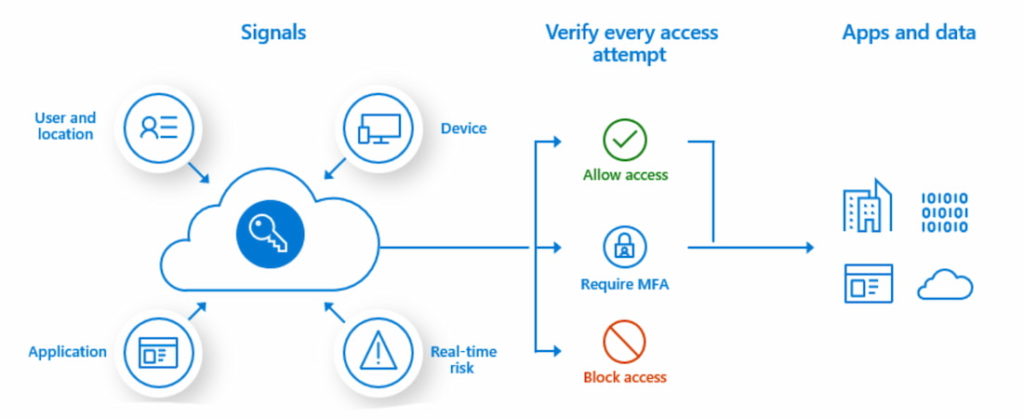
But even before that, Windows devices could be managed through various services. Again, a Microsoft Surface Edgebook could challenge Chromebooks with a service that’s attractive for schools to adopt Chrome OS.
Again, I don’t know what Microsoft will or will not announce at its event today.
But I will be watching, mainly because all of the parts to create a viable Chromebook competitor are already in Microsoft’s wheelhouse. And personally, I think this would be a better long-term strategy than trying to shoehorn Windows on ARM, which after several attempts, hasn’t really been successful.
What do you think?
Update: There was new hardware announced at the event: A $249 Microsoft Surface SE laptop with Windows 11 SE as the operating system. Additional hardware partners will have similar options available.


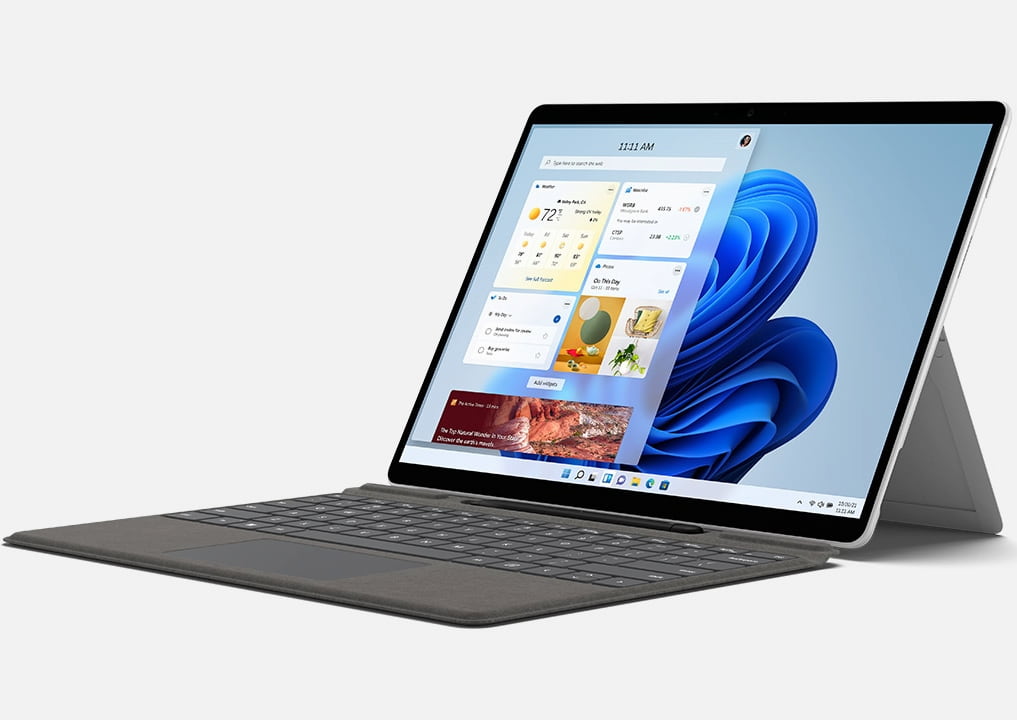
7 Comments
Very interesting idea Kevin, mooted by others too: https://www.zdnet.com/article/is-it-time-for-an-edgebook/
I’d imagine they’d assemble the pieces more based around Windows than CBL-Mariner though as they have the strategic advantage with Windows. Refitting it all around CBL-Mariner would take a lot of time and re-engineering.
I do think this would be a very strong proposition though, and given the app space Windows covers, for most of the EDU market they wouldn’t need to bother with wsl2 at all (although they can obviously turn it on/off using policy as needed).
Interested in your thoughts on Linux performance on Windows 11 though. Any thoughts on WHY it performs better then via Chrome OS? Have google locked down the architecture more with container inside VM?
Agreed, that it would take some architecture work to have Linux under the hood. But, it would allow for a “lighter” OS that can run better on lesser hardware. Linux on Chromebooks is pretty locked down. For security purposes, it runs a Debian Linux container inside of a custom VM that Google designed and built. With WSL2, Microsoft removed one of those two bits. WSL2 uses a similar but different approach. It runs a small Linux kernel in a Hyper-V hypervisor where users can install Linux distros of their choice. I think the speed difference I see is based on the hypervisor approach rather than the VM/container method.
Hey, stop that! Don’t give Microsoft any great ideas!
How is wsl2 faster than Crostini? It’s theoretically impossible, wsl2 is a full virtual machine hypervisor. Crostini is basically native Linux in a container, there is virtualization but it is for the purpose of isolation.
A better question why? What new thing would edge os bring? Microsofts cloud offering are still terrible, onedrive periodically deletes itself still in 2021, that’s like a 6 year old bug, OneNote cloud asks you to use pageup to go to next page, who has pageup /down on their laptop? This is built in and cannot be changed. And so on.
Agreed!
Nah…
Let me think about it…
Nah!
The whole Microsoft ecosystem will have to change. Active Directory is just not ready for a seamless service like Chromebooks can offer. It’s not just about the apps. It’s the stability, range of apps. “Powerwash” too.
Hmmm…
Maybe? In about 10 years??
A simple word is Never will MS succeed. Why?because of legacy. Intune, AAD etc, are just too complicated. Failures like Windows S, Windows Mobile are cultural not technical.
The only reason MS see Chrome OS as a threat is because it could have a long-term impact on their enterprise monopolised business. Take away M365 and the complete enterprise business model collapses as it loses the foundation of it’s monopoly. They are seeing the threat as millennials enter the workplace and don’t need to use O365 apps to their horror, unlike previous generations that are “hardwired” to Excel/PowerPoint/Word and struggle to instinctively work collaboratively with these tools.
MS committed to education? Nope – only as a means to sustain business model.